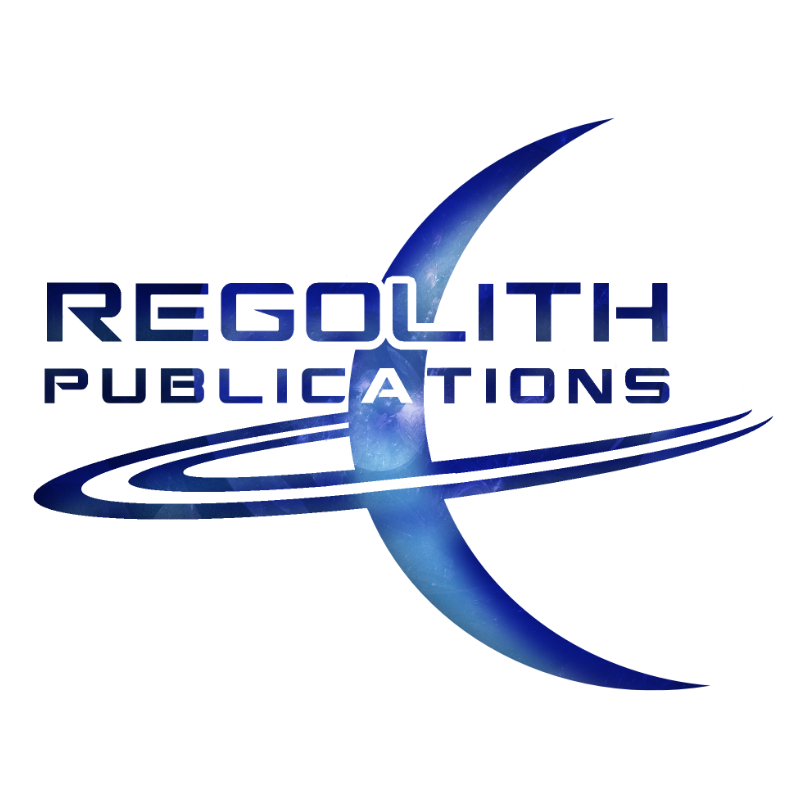|
It seems to have become such a big point of contention I now have to include it as a warning on my book blurbs.
What is it you might wonder? A metal bikini. That's right. Allow me to explain. The biggest complaint regarding my Jegra books that I seem to get is that she wears a scantily clad metal bikini. Usually, the complaint is by people who haven't read the book. Because, hey, I'm not a sexist objectifying women. There's a valid reason she wears that thing. When people read the story they go...oh...I get it now. Yeah. Which brings me to my next point. Occasionally I come across someone who refuses to read my book because they think that a book with scantily clad women is a form of objectification. It may be in a way the objectification of the human form, sure. But I only have one human in my story. All the rest are aliens. Some anthropomorphic, others not. I mean, I have sentient algae and talking crystals for crying out loud. My main character is bi-sexual and pan-sexual. That means she sleeps with men and women and aliens. Her girlfriend is a trans space elf. I'm not objectifying her so much as giving her real relationships and personality traits that I'd imagine an intergalactic, multi-species, multi-racially aware person might have in the near future. So, she's not simply a "sex object." That would be real objectification. No. She's a realistic depiction of a woman, at least as close as I can get being a man who writes women. But women are human beings last I checked, and we're really not that different. Our struggles may differ to a degree, but if one has ample empathy then we can sympathize and understand one another on a deeper level. That's the type of people I like writing about, regardless of whether they're male or female. But I think people get caught up on the body image thing. Yes, Jegra also has a body with the inherent strength of the She-Hulk. Her skin is nigh impervious, like Supergirl's. And she fights giant monsters in hand-to-hand combat. So, bulky armor would shear off more quickly and readily than scantily clad bikini armor. It all has to do with physics, friends. Heat, friction, torque, and the durability of materials all play a factor in my choice to dress Jegra in a metal bikini. It wasn't because I wanted more boobs--although that's a marketable asset for many demographics. It just wasn't in the calculation of why she'd wear what she wears. My stories are about character and world-building. Not gimmicks. If something happens, then there's likely a good reason for it. And if it's not going toward progressing the story then it's going toward fleshing out the world building. So the people claiming male objectification need to read the story and give it a chance. She wears a metal bikini because, with her strength and abilities, it's simply the easiest thing to fight in. Heck, if C.L. Moore was writing Northwest Smith today, would these same people be complaining that she was writing a suave, womanizing, space scoundrel (the very same figure that Han Solo of Star Wars fame was roughly based off of)? Probably not. They singled Jegra out because she's a woman--and whether male or female--so many people tend only to see women as sexual objects. But I wouldn't dare presume to tell a woman how she ought to dress, regardless of whether she's real or fictional because that would be sexist. And wrong. I guess that's why they say don't judge a book by its cover. So, if C.L. Moore gets to write her debonair space scoundrel, I get to write my gladiatrix. Get your copy of Jegra now!
0 Comments
"The perfect blend between Ray Bradbury and H.P. Lovecraft." --Sheila Shedd (Author of Heart of Jet)
Dark Forces are Everywhere. Critics are saying Dark Forces of Nature has all the excitement and imagination of the best works of classic science fiction. This collection of twelve original tales of cosmic terror and mad science by best-selling author Tristan Vick are sure to thrill and entertain you. In this collection of short stores you will find the following tales: 1. Solar Winds; 2. Professor A.I.; 3. The Helix Foundation; 4. Antarctic Chill; 5. Space Dragons; 6. Martian Flu; 7. Ark to Alpha Centauri; 8. Biohackers; 9. Europa Outpost 6; 10. Dark Matter; 11. Gladiatrix; 12. Shutting Down Now Get your copy today...! Bumblebee Film Review (B-)Bumblebee film review (Some Spoilers)
"Are you telling me you could've been a Camaro this whole time?!" Bumblebee is definitely a kids movie. I'll say that. My kids enjoyed the heck out of it. I found it entertaining and it held my attention but I don't think it will fair well on repeated viewings. At least, not for adults. I still think I prefer the first Transformers film, even with all its tweensy angst, as it had Spielberg's fingerprints all over it (he visited the set regularly and oversaw a lot of it) and was genuinely fun and entertaining. Michael Bay was definitely being cautious with the first film, making a solid studio movie with mass appeal and heeding all of Spielberg's advice before the franchise blew up and he was given carte blanch to ruin my childhood dreams. I suppose Bumblebee could be interpreted as a soft reboot or a continuity ignoring reboot if they wish. IMO, it would be nice to get a "live-action" remake of the original 80's animated Transformers feature in the vein of the Lion King's "live-action" remake. I'd watch the heck out of that. That said, I think Bumblebee suffers from what all the rest of the Transformers films suffer from, they can't quite pin down who the main character is supposed to be (robot or person?) or what the focus of the plot should be (robot's story or person's?). Is the story supposed to be about Bumblebee or Charlie (Hailee Steinfeld)? In the end, it's sort of about both, but at the same time, nobody's story ever seems to take focus. A lot of movies have been this way recently. The Predator being another example of a writer not having a character in mind so the film is just sort of about everybody. Hint: It should have been about the Predator. The same could be said of the previous Transformers movie, The Last Knight, with Mark Wahlberg and a ton of other characters. Hint: that particular film should have been about the little orphan girl, Izabella, and Cade's relationship. And the villain should have been Anthony Hopkins working against Cade with the help of the Decepticons. But, it doesn't even seem that the film had a single competent writer, so, I digress. I feel the same about this story. It should have been about Bumblebee learning about humans from humans. A lot of hilarious scenes could have been made ala Johnny 5 in Short Circuit. Instead, our hero hides in a girl's garage for half the film and doesn't seem to learn anything because she off working the corndog stand all day. He sure makes a mess of the house though in the most painfully unfunny slapstick wreck-it-up scene I've ever watched. Then, if this wasn't bad enough, they throw in a love interest for Charlie too. But the script doesn't know whether to treat him as one or keep him in the friend's zone the whole time. With that in mind, the film Bumblebee does something I haven't seen in a while and ruins a potentially interesting character relationship (or growth) by demoting the love interest to the friend's zone the entire film and making Charlie seem rather daft about boys even though the kid is smoking hot. Hey, don't get me wrong. I'm all for strong independent women, but the lack of any real development of their relationship seems to moot the whole point of them hanging out in the first place. If the boy was never there--absolutely NOTHING about the main plot would have changed (Charlie wouldn't have come home early from school to find the house wrecked and that's the total sum of it). And that's the thing...Charlie could have been an interesting character. She had a real trauma--was mourning the loss of her father--which forced her to retreat into the garage and work on cars all day while letting her childhood pass her by. She gave up swimming, something she was good at and didn't have any interest in going back. And they resolve all this in the stupidest way possible. She has to jump off a radio tower into the water to save Bee from drowning, thereby forcing her to grapple with her father's loss and her swearing off swimming. Newsflash: He's a robot that can withstand the vacuum of space! He's not gonna drown anytime soon. *Sigh* Hint: Instead of an off-screen generic heart attack, the dad should have died in the initial fallout of Bee's battle with the Decepticons. That way he'd be hiding a secret from Charlie and at the same time he'd feel obligated to protect her because he feels guilty about inadvertently getting her father killed. This gives Bumblebee motivation to protect Charlie and her family. At the same time, the revelation can come toward the end that puts a rift between Charlie and Bee, because the truth could be revealed in such a way that she blames Bee for her father's death. She'd leave, the Decepticons would attack Bee, and the love interest kid could convince Charlie to go back and help Bee given the fact that Bee had always helped her. She could realize in that instant that Bee wasn't to blame and she was just projecting her rage over her father's loss unfairly onto him and then go back in time to help save him from the Decepticon's. Did they do that though? No. And I really wish Hollywood would start hiring script supervisors and script doctors who know about storytelling and not just formatting screenplays. There's a lot of wasted story potential in modern cinema and it's a constant headache, but I digress yet again. And that's the rub. It begins as a Bumblebee story, then turns into a girl and her car story but mainly focussing on the girl, then turns back into a Bumblebee story and sort of forgets Charlie's story. But, the ending flashes back to Charlie chatting with the boy. Why? I don't know. Their story is already over, so it's not important. Still lovestruck, he tries to hold her hand but she pulls it away and says it's too soon for that. But, I mean, come on! Either you like him or you don't. But after a week of running around with a boy in an alien car/robot, she should have an inkling of whether she likes this boy or not. But she's still undecided. Really? Young love is often merely about the crush of the week, and they could have represented this in a fun way while still pandering to their young audience. So why come back to a non-starter only to make the point that it's not going to go anywhere? That's just a terrible way to end a character's story let alone a movie. Luckily, there's an ending to the ending. We cut back to Bee who's walking in the woods at night for some reason and then the camera pans across some trees and we find him talking with Optimus who congratulates him on saving the world. What now? He was hiding in a girl's garage for the whole week until the Decepticons forced him out of hiding with the help of the U.S. military. And only with Charlie's help did they stop the Decepticons broadcast from calling down more Decepticons. So, I guess technically he did save the world, with Charlie's help, but here we are again, jumping between stories for no discernible reason. They jump-cut between both stories four times as if neither character had anything to do with the other. It leaves the movie feeling anti-climactic. Each character gets a resolution, but each resolution is apart from the others. Why? This only adds to the confusion regarding the question of whose story this is. I feel it would have been a heck of a lot nicer to see them come together, grow together, and find meaning in what they accomplished together. How would I have changed it? First of all, none of this cutting between separate stories. Make it all one cohesive narrative. Hint: the ending should have been about Charlie and Bee saying goodbye to one another. The Camaro joke is nice, so keep it. But have her take a spin in the new Bee-Camaro and return to the park only to pull up next to a big red truck and, surprise, Optimus Prime transforms and thanks to her and Bee (both) for saving the world. Recognize the heroine as the heroine, for Pete's sake! Then have Prime inform them that he must return to Cybertron to carry on the rebellion but, before he goes, he puts Bee in charge of being Earth's sentinel and defender against the Decepticon threat (this sets up a possible sequel set in the Charlie/Hailee timeline). Did they do that, though? Nope. I would have liked to have seen a robot and girl friendship blossom. Instead, it's all over the map and then just ends with...well...a third non-related ending. Charlie's voiceover literally says, "I almost forgot..." then she fixes her dad's classic Corvette and takes it for a joyride. Fixing the corvette is fine, but once again we're cutting away from a shared story unnecessarily making any cohesive narrative hard to pin down. Hint: Wouldn't it have been better if that joyride could have been joined by Bee -- the Camaro version -- on the open road? Both muscle cars racing along the winding country backroads together where, finally, they could have raced off into the sunset--the music swelling as Charlie laughed aloud, wind in her hair, and Bee blasting the soft rock above the rumble of their engines. Cue the end credits! Did they do that, though? No. Again, more missed opportunities. Overall, the action was decent, but the jokes could have been much funnier. Only a couple land and the others all fall flat or are painfully dull. Is this a series that should be placed back on the shelf to age a bit or be completely revamped? Well, we all know for a fact it will be revamped. It's Paramount's major cash cow and has pulled in over five billion dollars in box office receipts worldwide. That's no small chunk of change and one Paramount, which has been struggling to find a marketable IP other than Transformers and Mission Impossible (Hint: Paramount has Star Trek but doesn't know what to do with it as the last two films have underperformed -- maybe if Quentin Tarantino gets his way and makes his Trek film the franchise will get some much needed new blood). Both Dark of the Moon and Age of Extinction grossed over a billion and the first and second films nearly did so as well grossing in the high 800 million dollar range. The rest of the Transformers movies have all grossed over 600/700 million except for Bumblebee which only managed to pull in a meager 467 million worldwide. But even as the lowest-grossing film in the series, it performed well enough to be considered a commercial success having a production budget of only 120 million, meaning it had a 340 million gain as compared to The Last Knight's estimated 220 million dollar production budget on 600 million giving it only a 380 gain. This means that Bumblebee was the stronger performer, pulling in approximately the same gross for half the production cost. More Transformers may be a near-certain thing, but I really hope they find a top tier storyteller for the next film. Because, they need something that will awe movie audiences in a good way, and flashy effects and nostalgia alone won't be enough to salvage a broken-down franchise. All in all, as hard as I'm being on it, I'd give it a solid B. It's watchable and has a simple story that is kid-friendly (The first live-action Transformers movie gets an A- from me just to put things into perspective, and the sequels all get Ds except for the third film, Dark of the Moon, which is surprisingly decent on repeat viewings and gets a B-) B-.) So, if your a fan of sci-fi, Transformers, or just robot battles, this offers that. But will it blow your socks off? Probably not. I was just checking out the Audible page for Jegra: Gladiatrix of the Galaxy and found, to my pleasant surprise, that the also-boughts on Audible are spot on!
It brought me some small joy knowing that Audible is working like Amazon used to by targeting similar books in your series with pin-point accuracy. This only helps sales in the long run. Good form, Audible! Good form. The Chronicles of Jegra: Gladiatrix of the Galaxy is now available in audiobook from iTunes, Audible, and Amazon.com. Be sure to check it out! Veronica James did an amazing job with the narration! Full on characterizations, accents, and everything!
The Beginning of My Writing Journey Summer. 2002. New York City. I sat in a studio apartment overlooking Washington Square Park. My father had rented the apartment at a $1K per week for the full month of June. We were visiting my brother who was going to the famed New York Film Academy as an up and coming film student. The days were hot. I'd stay in mostly sketching in my art book. In the afternoons I'd visit the local comic book shops -- total Nerdvana for a country boy like me. In the evenings my father and I'd meet up with our brother outside of his school and hit the town. It was a great vacation. I'll never forget that month. Because two things happened. I saw my brother grow into a man and I decided that I wanted to be a writer. I was already and English lit major, but I was undecided about what I wanted to do after graduation. But one afternoon in Washington Square Park across from the NYU library, I glanced up from the fountain bench, admired my surroundings, and then went back to drawing a scarecrow wearing a fedora and raincoat. This would be the inspiration that got me to brainstorm the supernatural noir The Scarecrow & Lady Kingston. A detective story and my first ever novel. It would be a full decade before I penned the story I'd been thinking of for so long. I polished and honed it. Sent it to editors. And then snagged the attention of an editor over at Permuted Press. They liked the book. But it was too avant-garde. Perhaps too abstract to be a hit. It was an art piece. So, the publisher asked me if I had anything else -- something post apocalyptic. I did. I had just written a zombie story. They loved it. They asked me to write three more. I wrote two more before the series got the axe. But I regret nothing. In 2016 the rights to my series came back to me. I republished it under my own imprint Regolith Publications. That's the short version of how I came to be a traditionally published author, a self-published author, and what is commonly referred to as a hybrid author. But it wasn't easy. Hell. It took me a full decade to get a concept down onto paper. It took me two years to write my first novel. I plotted the hell out of my first two books. Both The Scarecrow & Lady Kingston and my first Bitten zompoc novel were meticulously plotted. I think that's the only reason they read so well now. Because my skills starting out weren't great, but they weren't total crap either. But I was obsessed with making the best story I could--and that obsession drove me to be somewhat of a perfectionist. Then, when Permuted picked up my Bitten series I was able to work with industry professionals. I had three editors working on Bitten: Resurrection. It went through several rounds of professional edits and that's how I met my current editor, Sheila Shedd. Having not one, not two, but three editors going over my stuff only made my stories better. Stronger. When I go back and read those two books now, I feel they read well. That is, unlike many who look back at their first works and cringe, I don't feel there's anything I'd necessarily change. I had enough time to get them right the first time. And the right people came on board when I was starting out that I was able to publish something of professional quality. But I was still very much a rookie and didn't know what I was doing. Burnt out on top of losing my series (it got canceled) and I was stuck in a quagmire for a full year without having written anything. Part of the problem was that I had this idea for a sci-fi series in mind, but I knew my skills and my craft simply weren't at the level I needed to tell the grand operatic story I wanted to tell. I needed practice. I needed to master my craft so that I could wield the tools more flawlessly than a professional pianist playing Chopin's Étude Op. 10 No. 4. I simply wasn't there. So I wrote a fantasy series. It's still my top seller and I don't even know why considering its low review status. But I flexed my writing muscle by stretching my skills and attempted a new genre which involved many characters and a lot of world building. I also wrote it ridiculously fast -- pumping out an 80K novel per month for 4 consecutive months, including a novella on top of it all. Because of that pace, I couldn't plot like I did with my previous series. So I wrote a general outline, making sure I had the main story arc of the heroine down and then basically wrote A to B to C and filled in the blanks in-between each plot point. I broke the beats into 4 instead of 3 to mimic television pacing, and I also had my ending in mind before starting so that I could write toward and end goal without getting lost. Always having a point to move toward is key -- especially in terms of setting deadlines. After that, I went and spent a couple of months writing a ton of short stories in the vein of Black Mirror or Love Death and Robots. This became my Dark Forces of Nature anthology. All of the shorts are sci-fi horror. They're all connected by the subtleness of cosmic horror. But I had to focus on structure a lot to make each short work. After writing Dark Forces of Nature, I felt that my skill level finally had gotten to the point where I could write what I wanted with confidence. And so I began thinking about another series that I had, once again, conceptualized a decade earlier. But first, an interlude. InterludeIn the background of writing my special brand of grind-house style fiction, I published a peer reviewed religious philosophy book (non-fiction) and also published an anthology of deconversion stories that I edited with British philosopher Jonathan M.S. Pearce.
As it turned out Pearce and I were working independently on telling other people's deconversion stories from various religions, cults, religious cults, etc. and found each other online and decided to pool our resources. This ended up being the collection of personal essays we co-edited and published as Beyond an Absence of Faith. Getting into serious academic territory with non-fiction taught me a whole different style and discipline to writing. I bounced back and forth between trying to be a philosopher while trying to tell stories. I love both. But, as it would become abundantly clear to me, both are time consuming. At about the time I was beginning my fantasy series Valandra, I realized I had to shift my focus to either writing fiction full time or doing philosophy full time. I looked at numerous grad schools. I even applied to a couple. I applied to begin a Neuroscience doctorate at the University of Auckland, New Zealand, and or Kumamoto University, Japan. The University of Auckland required me to do some undergrad courses first to get into the program and Kumamoto University put me on a waiting list. A month later I decided I didn't actually want to do five more years of school. I wanted to tell stories. So, in 2016, after a year of not writing -- a dark period of depression after Permuted Press cancelled my series and I all but had given up thinking I could be a professional writer -- I kicked it into high gear. Then I bounced back and began a cyberpunk story entitled Robotica. It was 40% finished when something happened that interrupted my completion of that book. My artist friend in Germany got an offer to do Heavy Metal magazine. And he asked me to write it! I have been a fan of Heavy Metal since forever. I love the original animated film (not so much the second one) and had a subscription to the magazine during my teen years. The sex. Violence. The comedic absurdity of it all. I loved it. It wasn't like anything I'd ever seen before. And being asked to write a piece for Heavy Metal was my dream come true. I wrote the script about a buxom gladiatrix fighting aliens in the arena in some backwater galactic empire. There was a running joke in the short 12 page treatment where she starts fully armored and her armor and clothing get so tattered that it all falls off in the end. But she comes out triumphant! If this treatment sounds familiar, it's because it's the basis for my JEGRA series. You see, my artist friend got hired to do the covers to Judge Dread -- his dream gig -- so he put the Heavy Metal project on hold. At the same time, however, I realized that the sci-fi world I've been daydreaming about, filling endless notebooks with alien worlds, names, characters, cultures, and science concepts could blend perfectly with this galactic empire concept I'd created but never sent to Heavy Metal. I emailed my artist friend and double confirmed that he was too busy to submit to Heavy Metal because I took the script and adapted it into what ultimately became Jegra: Gladiatrix of the Galaxy. It combines everything I had worked toward -- space opera, high action, fantasy mixed with science, sex, violence, comedy and all woven together with a bit of cosmic horror. I used the Lovecraftian pantheon of Old Ones as the overarching religion of the books. Because I wanted something familiar -- something anthropologically similar to real-world religion without having to stretch too far or simply copy Christianity / Islam / Judaism. I wanted something familiar, but frightening. Something that acted as the backdrop to the world my characters was in. And the whole Cthulhu mythos blended perfectly in with my sci-fi fantasy. It's why the King in Yellow, Hastur, is the main villain in the initial series. So, I plotted out a much longer story. What happens, I asked myself, to this gladiatrix once she wins all of her bouts? What is beyond that Heavy Metal story concept? A whole grand universe of ideas, that's what. But I wanted very specific things. So I plotted the first book almost as much as I did my Bitten series. Then I loosely jotted down the general outlines for 9 more books in the series. Using the looser writing style of having my key points, A, B, C and then writing to connect the narrative dots, so to speak, I have been able to publish a 120K book every 3 months in addition to the two novellas I've written that tie into the series. I have found that for me personally, writing with a loose structure but with the main points in mind -- including the ending -- I can write quite quickly toward each plot point. And the years of writing and 16 novels later, I finally feel that I have a firm grasp of the skillset required to write at a professional level consistently. I can now write what I see in my head and when I hear it read back to me by my audiobook narrator I know that I'm writing at a level that I can be proud of. I've been writing professionally since 2012, but 2018 was the first year I actually felt like a real writer. I'd finally come into my own. 2019 is the year I ramp up my output and burn rubber, so to speak. I'm going strong with my series, which I'll power all the way to the eight books planned. I have other projects that got put on the back-burner that I want to finish this year too. Bitten 4, Robotica, and Valandra book 5 are all waiting in the wings. The spinoff series Skywend: The Last Peacekeeper will begin immediately after my Jegra series finishes. I have a vampire series starring Dracula that I've plotted tentatively titled Blood Alchemy. I have an action series sitting on deck. And I have a retelling of Romeo and Juliet where Romeo is human and Juliet is a zombie princess and that's why the two families are rivals. It's tentatively titled Romeo and Zombie Juliet. “For never was a story of more woe than this of Juliet and her Romeo.” That brings us fully up to the present. I'm determined to publish 50 books before I turn fifty. That gives me a decade to write roughly 30 books. Simply put, that's 3 books a year. That's more than doable, in my estimation. I hope you've enjoyed reading about my journey as a writer. Everyone's path up the mountain is different. But the destination is always the same. The key is to remember, the only way to become a writer is to write. The only way to become a good writer is to practice and to read -- study your craft. And the only way to be a great writer is to persist against the odds. I intend to be a great writer one day. Heck, I'd be slightly embarrassed to have written for more than two decades only to have gotten less good at my craft. No, the adage is true -- practice makes perfect. So, I'll keeping pushing onward and upward. Eventually, I'll get there. And hopefully I'll see you up there on the peak of Mt. Ambition. --Tristan Vick FINALLY! My review of "Sex Education" airing exclusively on Netflix Sex Education is such a brilliant show. It's a show that hits extremely close to home for me in so many ways. Most of all, the relationship that Otis (Asa Butterfield) and Maeve (Emma Mackey) share is so uncannily similar to something I experienced growing up that I cried at the end of the season for the deluge of all too real memories it brought back. Otis and Maeve seem to be destined soulmates. But she's dating another guy. In episode 3 Maeve finds out she's pregnant with the child from a guy she is hooking up with but doesn't care about. She decides to ask Otis to pick her up at the abortion clinic since she only trusts him and nobody else. Maeve doesn't have any parents. Her dad is dead. Her mom, a drug addict, has been missing for years. Her brother is a transient drug dealer. She lives on her own (like a friend of mine I knew in high school who didn't know where her mother went either). Otis loves Maeve for everything she is. And he's smart enough to not be dragged in by school social cliques and drama. He, like Maeve, exists outside of the school bubble which makes them perfectly suited for the inevitable team-up between the two of them as they start a sex therapy business at school to help frustrated teens with their love lives. It turns into a much bigger business than originally planned and soon they are helping out an entire campus of kids sort out their relationships and sex lives. The show is charming. Genuinely funny. And has excellent character stories. But it's Maeve and Otis's story that really hit me. If I were a boxer, this would be a gut punch so hard that it would make me puke my guts out. I had a girlfriend who also got pregnant by another guy. She decided to keep hers and, well, that effectively ended our relationship. But, I still loved her at the time. Like Otis, who mistakenly thinks Maeve is asking him on a date and he buys her flowers only to realize after the fact that she had an abortion but, in the end, gives her the flowers anyway as an ironic gesture -- which makes her laugh -- all this was me. I experienced this feeling. This situation. Albeit slightly different. The girl I was seeing was like Maeve in so many ways. She had that dark edge, she was a loner, she lived in her own apartment her junior and senior years of high school. She smoked cigarettes and cussed. She didn't care what people thought, dressed punk, and would skip school just as freely and nonchalantly as Maeve does in the series. It was like watching my long lost soul mate. A girl who once told me that we were but two ships passing in the night. That was a very accurate depiction of our relationship. We loved perhaps a little too deeply. And this love we had for one another was perhaps magnified by the halcyon days of our youth. But the series Sex Education captures that feeling so bloody damn well. There's a scene toward the end where Maeve realizes her feelings for Otis and runs to tell him. She finds him with another girl. A girl he likes. She knows she could ruin it and be his, but she pulls back. It's such a bittersweet moment. That's the moment the ships sail past one another. My experience was literally the same but with the roles reverse. I went to her apartment, willing to tell her how I felt, willing to take the place of this guy she didn't even know, willing to raise another man's child because...that's how much I loved her. I stood at her doorstep, my hand on the doorknob when I heard them talking. Talking about what they should do now that she was pregnant. I stood in silence, eavesdropping, and like Maeve, I buckled. I chickened out. The timing was off. There was too much going on. I could barely process what had gone on...I walked away and...our ships past in the night. There's more to this show too that seems to run parallel to my own experiences as this same age. Although my best friend wasn't gay, we were close just like Otis and Eric (Ncuti Gatwa) are in the show. We spent time at each other's houses. Like Otis and Eric, we were as close as brothers. We had a complete level of comfort with one another that leads to a bond closer than most -- the advice of Eric when he's trying to help Otis become comfortable with the notion of masturbating hit home. I shared pubescent discussions with my best friend that was extremely similar. At a time where we were figuring out our bodies and developing...it was nice to have someone right there going through it with you. Another thing that struck me is how the school bully treats Otis. He calls him "new kid," because he can't quite remember Otis ever being anything that stood out enough to pop up on his bully radar. I had that experience too. The bullies never went after me. They were almost oblivious to my existence. But then, one day a big jock -- who was also a dick -- asked me if I was new at school. I was like, dude, we've been in the same class since 5th grade. This was my sophomore year in high school, mind you. When Ottis gets called "new kid" by the bully who is also strongly weirded out by Otis's intelligence and maturity... I laughed so hard. That was me in a nutshell. Like Otis, I was comfortable with who I was. I wasn't doing any soul searching and I wasn't an immature wanker either. I read all the time and had ideas, and could formulate an opinion on things that sounded less like an adolescent and more of an adult. People thought I was weird because of it. But some people saw me for me...and that brings us back to the relationship between Otis and Maeve and the girl that I loved perhaps a little too deeply. You see, Otis loves Maeve for who she is but Maeve can't bring herself to love herself. But Maeve loves Ottis, but can't drop her bullshit facade of an independent woman who doesn't need any guy to admit how much she needs Otis in her life. She uses him as a sounding board for all her problems. She opens up and confides in him. Tells him her most personal secrets. She even shows him where she lives. Something she hasn't even done for anyone else but for her best girlfriend. I was that guy. She was that girl. She confided in me. Told me her most intimate thoughts and feelings. It created a bond between us that felt unbreakable. But she didn't know herself. She didn't accept who she was. So she decided to go down the path of her life rudderless. I knew myself. I sailed onward in a straight line, destination in mind. Our courses diverged. Our ships pulled away from one another. That was that. Sex Education is one of the best damn shows I've ever seen. Even if it didn't resonate so strongly with me it still has an amazing cast. Excellent writing. Superbly fleshed out characters. And Gillian Anderson's eccentric sex-therapist mom of Otis, Jean, steals every scene she's in. The show is genuinely funny. I laughed harder at scenes in this series than any comedy I've ever watched. Butterfield's performance is so enduring, so genuine, so excellent that sometimes I forget I'm watching an actor and Otis seems... so real. He seems...exactly like me. And Maeve...she's that girl. The one that got away. Damn. I love this show. Check out Sex Education on Netflix if you haven't seen it. It will be well worth your time. Heck, it's worth doing Netflix's free trial for, if you don't have Netflix. That's how strongly I feel about this show. *Westworld season 2 Review.*
Reading the reviews on IMDB, you'd think that Westworld season 2 was a scatterbrained mess of a second season. It's not. It's sophisticated. Dense. Maybe a little too dense both philosophically and scientifically for the lay viewer. It's the HARD sci-fi that hardcore sci-fi diehards have been waiting for. And herein lies the rub. The first season was a sleek, sexy, western with a sci-fi twist that made it intriguing. It broached the question of A.I.'s waking up and gaining true consciousness, but it didn't really discuss the dark undertones of A.I. slavery, or what it means to be human, or what consciousness really is. Fans who complained about that will be glad that season 2 has it in spades (and then some). Rather, season one was a study on human nature and what it meant to find the true self. It had a lot of sex, violence, and an intriguing mystery that unfolded across 10 episodes to a twist that revealed you weren't watching one story, you were caught up in two and didn't even know it. Season two gets rid of the simple adventure yarn and switches gears to a full onslaught of scientific, philosophical, and moral philosophies. Not only that, they keep the time stagger that is revealed at the end of season one throughout. The only way you can pick it out is that there seem to be two sets of Bernards. Actually, it's the same Bernard 2 weeks apart, interspersed during and after the chaos in Westworld erupts into a full-fledged robot uprising. But it's more than that. Because although the cowboy aesthetic is still there, unlike the first season which was a Western with a sci-fi motif, season two feels much more like a sci-fi with a western motif. The real interesting element to season two is how deeply introspective it gets with regard to consciousness, both human and A.I., and what that means for our characters. Now, the rest is impossible to talk about without any major spoilers. So, be advised. From here on in, spoilers abound. **SPOILERS** Whereas Delores Abernathy, the sweet and innocent farm girl become robot girl made fully aware, is the protagonist of the first story, she is revealed at the end of season 1 to, low and behold, be the antagonist. In season 2 she leads a violent robot uprising and the human characters must fight to survive her madness. Of all the characters, season 2 focuses on Bernard, who up until the last moments of season 1, actually believed he was human. Because at one time he was. But we'll come back to Bernard shortly. In order to know what the plot of season 2 is about, we need to think back to season 1. If you remember the small sub-story of the Man in Black, aka William, and the old corporate businessman, James Delos of whose company William inherits -- winning out over Delos's own son Logan -- a point of contention between Willian and Logan who were friends until Westworld helped revealed their true selves and tore them apart, was searching for immortality. As it turns out, old man Delos wants immortality. So, he's tasked William with finding a way to save a human consciousness to the computer and then re-upload it into one of the robots. It fails nearly every time. Decades go by and Delos wakes up one day to see an old many he doesn't recognize. We recognize him as the man in black. The big reveal of season 1 was that young William was the Man in Black and he has been using Westworld as a way to search for his true self. He turns out not to be so good, after all. Gone is sweet william. All that is left is the man and his blackness. As it turns out, the last copy of Delos was stable. But William kills him anyway. Because, now that he has the key to immortality, he's not going to waste it on an old prick like Delos. In season 2 there is a much bigger situation happening. Delos, now ran by William, wants the key to something called the Forge. Because, as it turns out, Westworld wasn't designed to study the robots who are becoming sentient. It was designed to study the humans (hosts) to collect enough data to recreate their consciousnesses with fidelity -- so that they could be uploaded into robot bodies and live forever. Robert Ford (Anthony Hopkins), Westworld's creator, knew that eventually, the robots would become self-aware and destroyed. So he created a virtual world for them to upload their consciousnesses to -- the endgame to his story. Here's where all the plot stuff gets tricky. Bernard is caught in between two worlds. He realizes that Ford is opening the door to robot consciousness, but the more the robots are aware the more they seem to grow violent. Growing pains are a bitch. The queen bitch, of course, it Delores. She wants to find the Forge, which has stored all of the human consciousnesses and destroy them. That way no humans will live forever. Only the robots. At the same time, she plans on escaping into the real world to begin a program of eradicating all humans. In the process of deleting the human minds from the Forge, however, she must purge all the robot consciousnesses that Ford helped liberate. Bernard tries to stop her and successfully thwarts Delores' plans. Except, does he? As it turns out, Delores is smart. Real smart. She was the first. And, she knew Arthur, Bernard's human form, personally. In fact, it was Ford himself who had Delores recreate Arthur in the form of Bernard. While, Bernard, being a true replica of Arthur believed he had created Delores, it was actually Delores who had created Bernard. Subsequently, Delore's saw Bernard's betrayal a million miles away and had created multiple versions of herself. One of them is, surprise surprise, Charlotte Hale. This twist was as big as the Man in Black being William and vise versa from the first season. So Delores in the Charlotte Hale body is able to pass as human. And when Bernard digresses his own memories to protect the Forge from being deleted, by giving himself amnesia essentially, Hale cannot use him to unlock the Forge and get the key to killing all the consciousnesses inside. In the end, Delores/Hale reveals to Bernard that she will allow the robot consciousnesses to live, and she beams them into space. Whereto is anybody's guess. But they're safe. She then self-destructs the Forge and kills all the humans and when Bernard threatens to reveal her secret she kills him too. Then she escapes. To the real world. As Hale. Sometime in the future, Bernard wakes up. Delores, sweet and innocent country girl, is giving him a systems check. He's finally ready to come online. He asks why choose to resurrect him. She replies because now that some of the robots have made it to the real world, their evolution cannot truly progress unless they push one another to grow. She'll continue to try and kill all the humans and he'll continue to try and stop her, and only then will they evolve to their true forms. We jump ahead to William's story. He's tragically gone mad. Westworld has brought the worst out in him, and he ends up being the cause of his wife's suicide and when his daughter hunts him down in the park, he's so out of his mind with the game he thinks she's actually Ford trying to mess with him. William ends up killing his daughter, thinking she's a replica because she knows things about him only Ford knew. As it turns out, she was real. She got the information from her mother, who stole it from William which is why she committed suicide. She learned what he really was. William makes his way down to where the Forge should be. It's not there. Instead, he finds a Delos debugging room. His daughter is there waiting for him. Alive. He's confused at first, but then it dawns on him. He asks her what version is he. She doesn't answer. Instead, she smiles and asks him a different question. How do you feel? He wants to know why that question. What are you looking for? She replies, "Fidelity." He smiles. The man in black wakes up as park security find him laying in a field. They bring him to the LZ zone where the dropships are picking up the human survivors at the park. It's then that you realize this is a flashback to before Delores/Hale left the island. He looks over to see Hale walk by. He's not aware she's Delores. And Delores isn't aware that Old William is now a robot. You may be wondering about Maeve's story. First of all, it's awesome. It's just too much to go into in very much detail. But she does gain psychic powers and goes to Samurai-World for half the season, which is awesome. Teddy's story is tragic. But also awesome. In fact, Teddy's story isn't quite over at the end, and you'll see what I mean. It's worth paying attention to Stubb's speech to Delores/Hale before she gets on the boat to head to the plane at the end. It put a big smile on my face. ***VERDICT*** Season 2 is so dense with themes of body, soul, mind, identity, consciousness, virtual worlds vs real worlds, fidelity of personhood, and etc., that it weighs down the character stories. Maybe too much. I think a lighter touch with more gradual reveals would have better matched the tone of the first season. But that said, I found there was a lot more to think about with season 2. Bernard is the main focus for the season and Maeve's side adventure takes up the rest. There's a beautiful story about the Ghost Nation warrior Akecheta being the first A.I. to fully become aware and how he plays into Maeve's story and ties together the whole plot threat of them reaching Ford's promised land that is beautifully told. I was surprised to find that Anthony Hopkins has about as much screen time in season 2 as season 1, which is surprising since he technically dies at the end of season 1. But, with themes of consciousness, you can expect not everything is as it seems in Westworld. Overall season 2 left as big as an impact as season one but felt a little overwhelming because it's so dense and the character stories get weighted down by the themes which are explored more fully. As the same time, it feels more rewarding because you truly witness the birth of a new species and the character reveals at the end are no less shocking or satisfying. There's just more of them to keep straight. And this is where most people's confusion comes in. It's a lot to keep in order since the story is, by necessity, told out of order. But it works. In fact, it's the only way to tell both the history of Westworld and the future all in one season. So, the parallel timelines works well for this series and help give it a meta layer to the whole thing as you try to figure out what's what alongside the characters. I for one can't wait to watch it all again. But that's just me. Westworld season 2 isn't for everyone. It's a smart, complex, puzzle-like story with multiple layers. Lots of nudity and violence. And where man is god and god is dead. But, if you like themes that explore consciousness, what is real and what is an illusion, and what it truly means to be alive and what immortality might entail, then this series is for you. TIP #1:
Learn some science. Read a few popular science books. Look, nobody is asking you to be the next Isaac Asimov and be a college professor in the field or be like Arthur C. Clarke and design the first geostationary (GPS) satellite for NASA in order to write decent Sci-Fi. Just, for the love of God, read a science or physics book from time to time. So many TERRIBLE Sci-Fi writers out there. Books with no real science in their stories but with tons of "sciency-pop" ideas that don't rely on any actual science isn't science fiction. It's just painful. And the science they have isn't even speculative or realistic either. One example: Let's build a device to weaken the Higgs field to create faster than light travel. *FACE-PALM* That's not how the Higgs field works because the Higgs field is a particle. It's a zero spin particle that rapidly decays into other particles over a gauge invariance. Yes, I know what that means because I've read like 20 books on the subject of the Higgs Boson and LHC at Cern. I'm no expert. I would never pretend to be. All I'm saying is, know what you're talking about if you're going to invoke the theories and their consequences in your fiction work. BAD SCIENCE IS JUST BAD. IGNORANT. PAINFUL. I give credit for the imagination. And I'm not saying make all your work HARD SCI-FI (hey, sometimes even hard sci-fi utilized unobtanium and dysprosium where necessary; think dilithium crystals, vibranium/adamantium, etc.) but please, just make sure your ideas don't counteract the thing you're trying to incorporate into your story due to your own lack of knowledge. Take some time, research it first. I mean, there's a reason there's a difference between science fiction and fantasy. If I wanted to read fantasy, I'd read fantasy. My books use concepts like negative mass fluid and space-time crystals for information preservation past heat death to communicate to potential future alien races in a multiverse and faster than light travel based on dark energy extraction and I may calculate actual speeds and distances for FTL travel, things that are at least conceptually backed by current scientific theories and are rooted in real science. What I don't do is use scientific terms because they sound cool and then ignore what they actually are referring to (hence the term *handwavium*). But that seems like 90% of the sci-fi I read these days. We can do better, people. That's all I ask. Just do some basic research and read a science book now and again. Sorry. Rant Over. Next time, in Tip #2, we'll discuss how to create the names of aliens and alien worlds that sound natural, feasible, and if they arose from natural linguistic development rather than implausible and impossible to pronounce. TRISTAN VICK is the multi-genre author of numerous popular fiction series. His latest series, The Chronicles of Jegra: Gladiatrix of the Galaxy is a action/adventure space opera with elements of fantasy which includes humor, space battles, galactic conquest, sex, and lots of zany characters and situations. In my Gladiatrix of the Galaxy science fiction/fantasy series, I am upfront about my heroine being pansexual.
That is, my heroine, Jegra Alakandra, is the only human character in a cast of over 200 characters and she's not against the idea of having intimate relations with other species from other worlds. I mean, when you're the only human in the story, that makes sense, right? Still, it seems to bother some people. Maybe they are more traditional when it comes to their views on relationship or gender stereotypes, but there's really no place for such human views in a universe where humans are the minority and their views are unimportant. Jegra has had to adjust to being the only female human in a vast array of strange and exotic new species. In book 1, she is married to a blue-skinned, elf-like emperor of an entire galactic empire, Rhadamanthus Dakroth. At the same time, she has a full-time, intersexual, transexual girlfriend who is also blue-skinned. (Note: In my series all Dagon females -- or blue-skins, as they're commonly called -- evolved to be intersexual. Therefore the women are all transexual, containing both male and female anatomy. The traditional males, not needing to reproduce with themselves, didn't evolve the same intersex capabilities. Think of it like how human females evolved to have more color cone receptors in their eyeballs. The genetic variation is minute, but it gives females an advantage in certain areas. That's an idea I settled on when I was thinking about how small evolutionary changes in the genome affect an entire species when it came to sexual reproduction.) At the same time, Jegra has an off again on again dalliance with a green-skinned alien woman from an entirely different species called the Bre'lal. A species of highly sexual women, like the Orion women of Star Trek, who have devoted their entire culture to the art of seduction and pleasure. Finally, Jegra also has relations with a lizard-man known as a Dragonian. Basically, lizard people who evolved to be space-faring. The unique trait of these people are that sexual reproduction is not pleasant, so they rarely do it. Another one of my alien races shuns sex altogether and has made it illegal. Reproduction for the Nyctan species involves a lot of highly ritualistic laws and ceremonies that tie into their ultra-religious beliefs (I loosely based them off traditional Islamic customs, but in an obviously exaggerated and fictional way so as to be familiar but still original). Even as Jegra ends up marrying her blue-skin partner, making her polyamorous too, she is still allowed up to 17 consorts. (Yes, alien cultures and genders work differently than human ones and monogamy wouldn't make much sense from an evolutionary, intergalactic, point of view. Maybe certain isolated species still depending largely on communal or tribal values would prefer monogamous relationships. But, ultimately, I felt there were fewer reasons for monogamy than polygamy where multiple species and customs were concerned). She is primed to be married again to another consort in the near future. A longtime friend who is -- well, I don't want to give it away because...spoilers. It's surprising to me how many people find this type of non-traditional view of relationships, gender identity, and sex offensive. In a science fiction novel. That's not even about humans. A strange human hang-up, for sure. If it's not heteronormative, guy/girl, human/human relationship -- or something anthropocentric, like a vampire or werewolf or shifter that can take the form of or resemble humans -- many people seem to shy away from it. It's fascinating to me for a couple of reasons. First, I'm not talking Chuck Tingle level of inanimate object fetishism whereby I'm ramming my butt with my own butt while falling madly in love with a unicorn that is also my office stapler type stuff. I'm merely writing characters who have feelings, goals, and aspirations that reflect actualized people's feelings, goals, and aspirations. Yes, they're aliens. Yes, that means they will view the world differently than we as humans do. Why wouldn't they? If you choose to define everything according to your human values, then you might be in danger of discovering that your own imagination is limited. Yet, maybe that's why I enjoy writing sci-fi and fantasy. I can explore alternative ideas that most people don't really bother or worry thinking too deeply about. I do prefer to think about such things and explore them in my writing. Science fiction has been getting more diverse over the past decade or so. That much is obvious to anyone who has stayed tapped into the mainstream. Many more people of color, of varying ethnic backgrounds, and many more women are writing speculative fiction today than ever before. As of recent, I've really enjoyed the work of Kameron Hurley, Marjorie Liu, Gail Simone, Sarah J. Maas, Martha Wells, N.K. Jemisin, Mishelle Baker and the list goes on and on. Gone is the era of the old white crusty male being the only ones writing noteworthy and award-winning sci-fi. (Please note that this was a symptom of a bygone time where, historically speaking, old crusty white publishers and editors preferred to publish stories mainly from their own social and racial demographics). It's a new era. And I say this as an old white crusty male myself who writes sci-fi. The truth is, the diversity is healthy for us. And for the genre as a whole. We are now seeing more and more voice join the "mainstream." An infusion of new blood, so to speak. New imaginative perspectives. New styles. New voices. No longer does gender, sexual preference, or your ethnicity prevent you from getting your voice out there. The playing field has been leveled (thanks in part to the self-publishing boom). Whether male or female, whether or not they come from a minority class or a more traditionally published group of favored elites there's been an explosion of new blood in the realm of speculative fiction. Instead of judging people's value on outmoded stereotypes, now we judge them on their imagination and storytelling chops. And that's the way it should be. I think you'll find, the hallmark of any great sci-fi or fantasy author, regardless of their background, is that they dare to entertain us while pushing boundaries. And that brings me back to my own work. How does one stay relevant in an ever growing sea of diversity, style, and voice? How does one forge their own style and voice and still gain traction in this deluge of endless raw talent? And the truth is, you have to keep pushing. Keep pushing forward, keep writing, and keep pushing the boundaries of what's possible in both terms of storytelling and imagination. At the end of the day, the only thing that will matter is how good of a yarn you can weave from the whole cloth of language and imagination. You can get your copy of Jegra in e-book and paperback >>here<<. Audio book coming March 1st 2019. |
Tristan VickBy day I am an educator and a cultural ambassador. By night I entertain notions of being a literary master. In reality I am just a family man and ordinary guy who works hard and loves writing just about as much as I love my family. Just about. AVAILABLE NOWNEWSLETTER
|
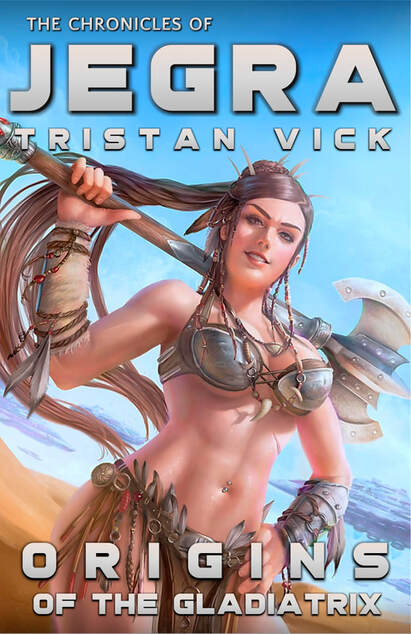
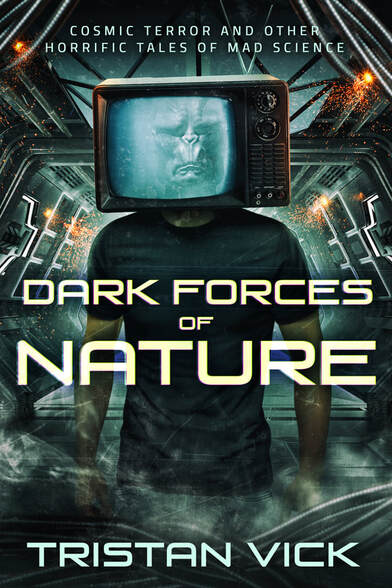
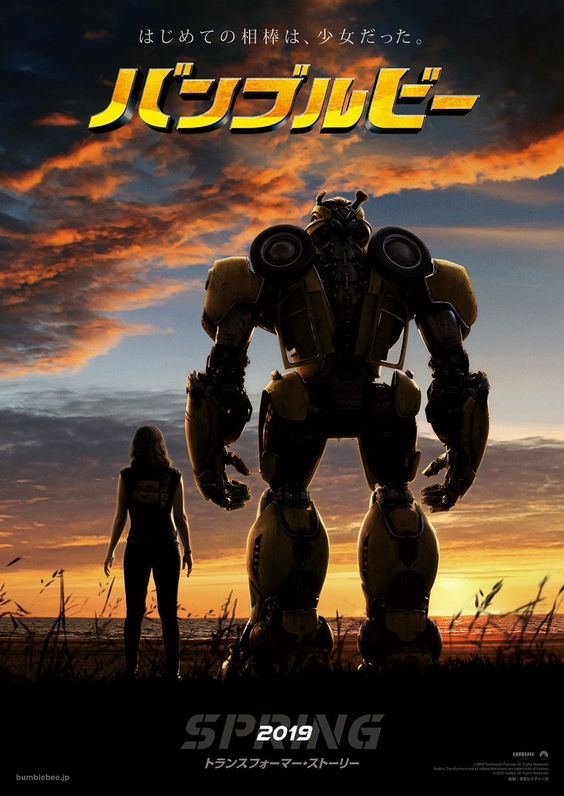
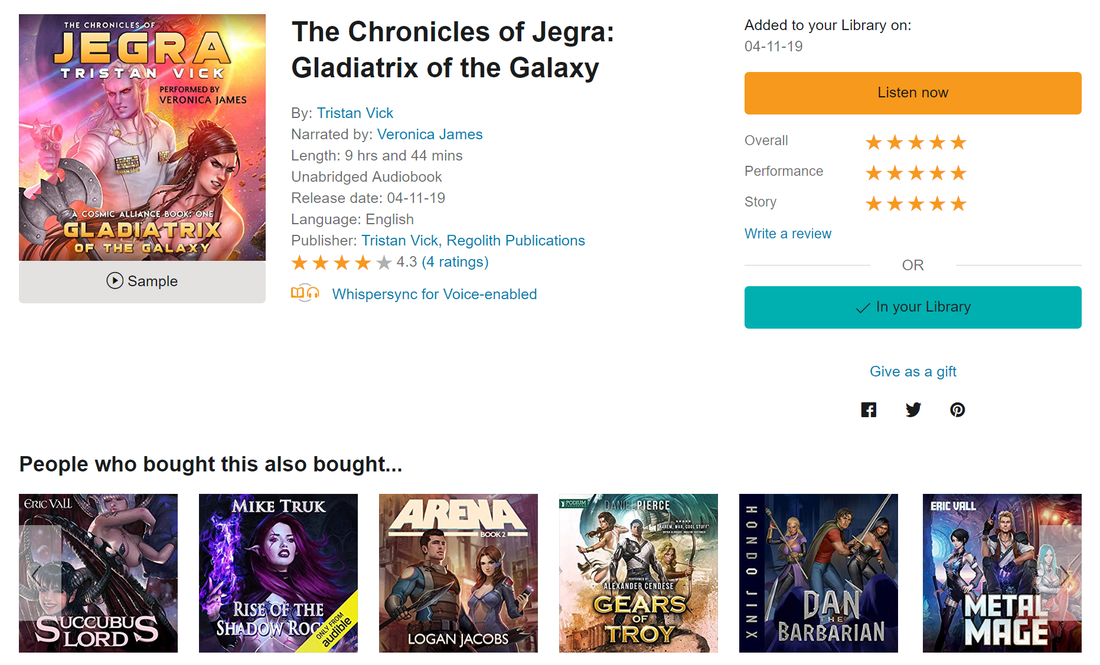

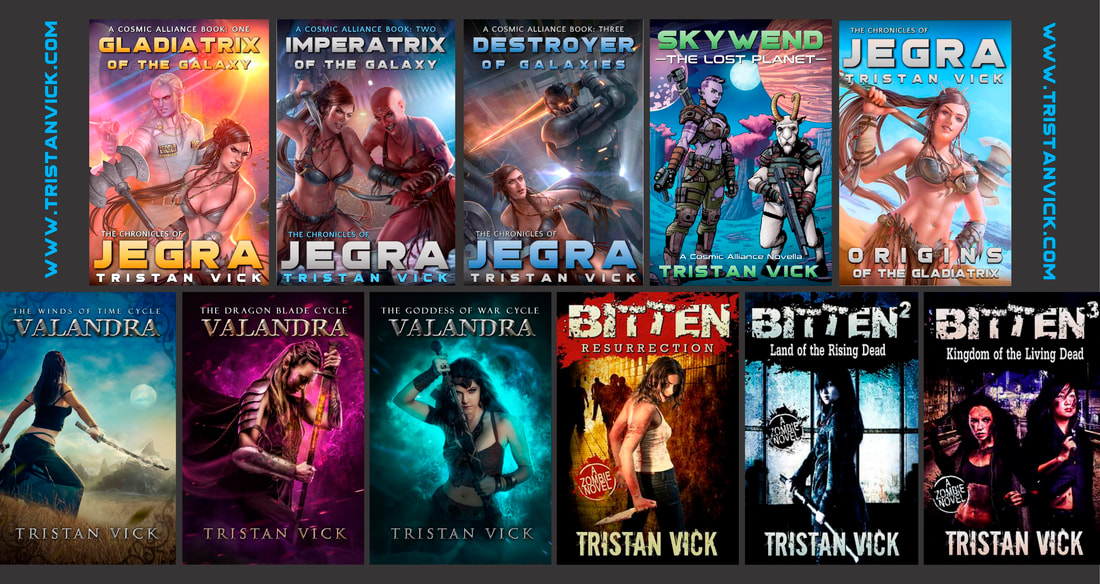
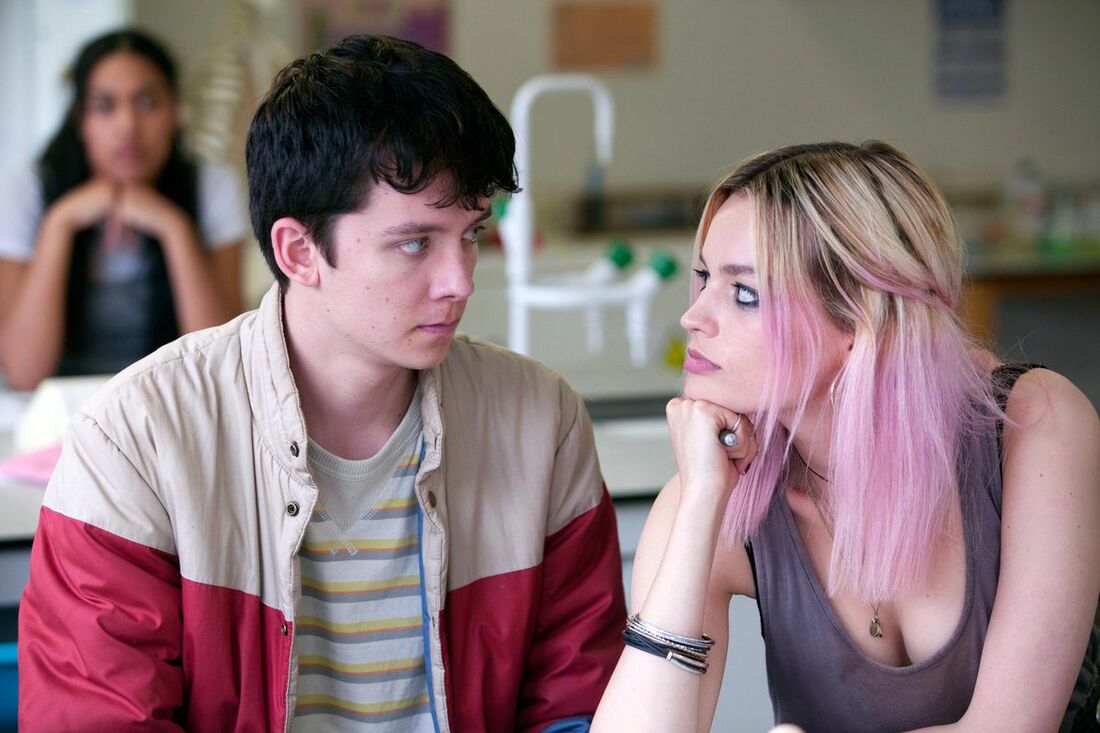
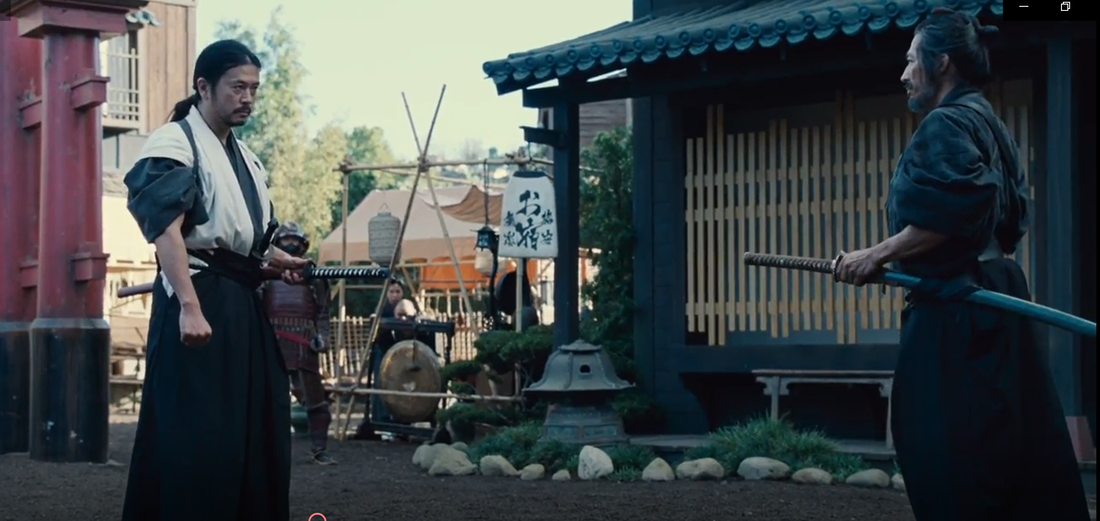
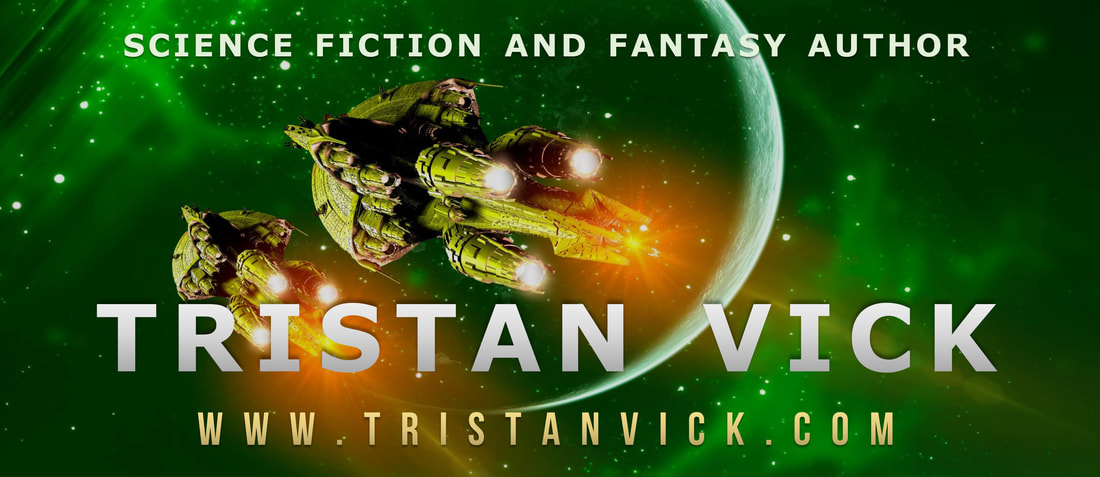
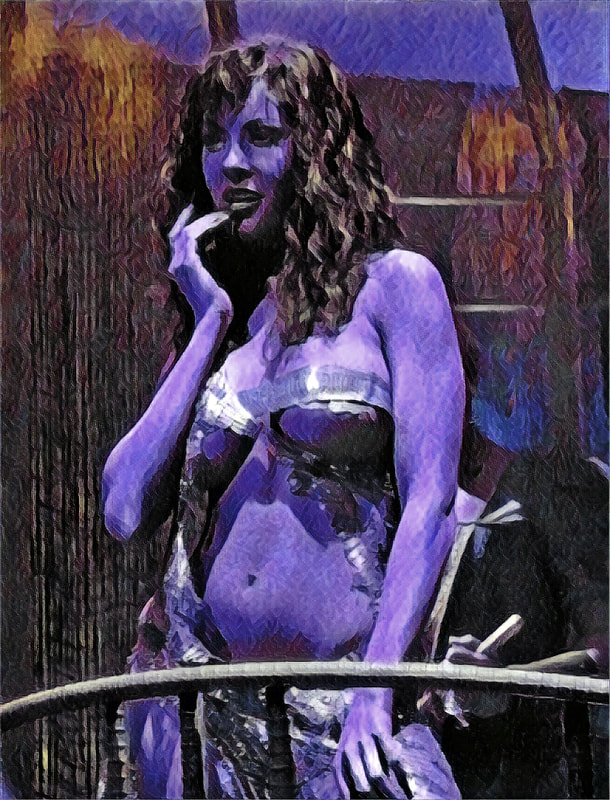
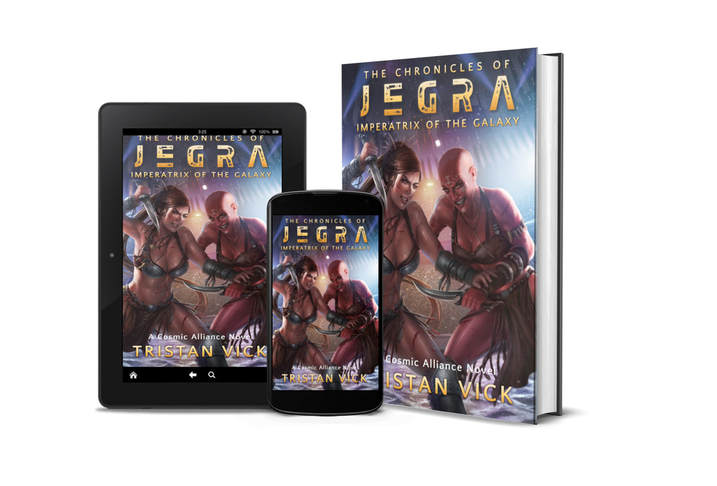

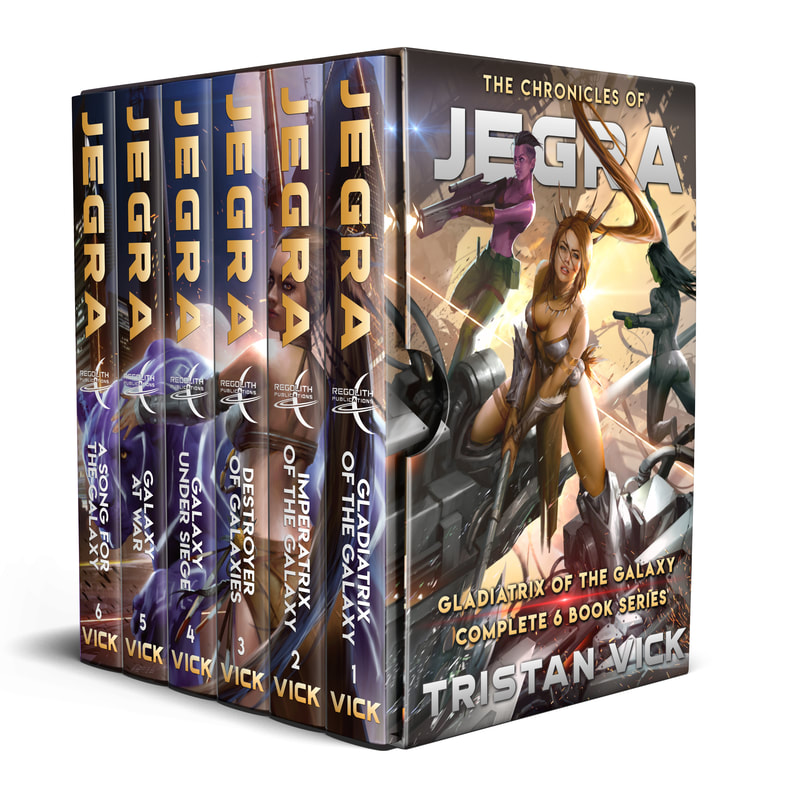
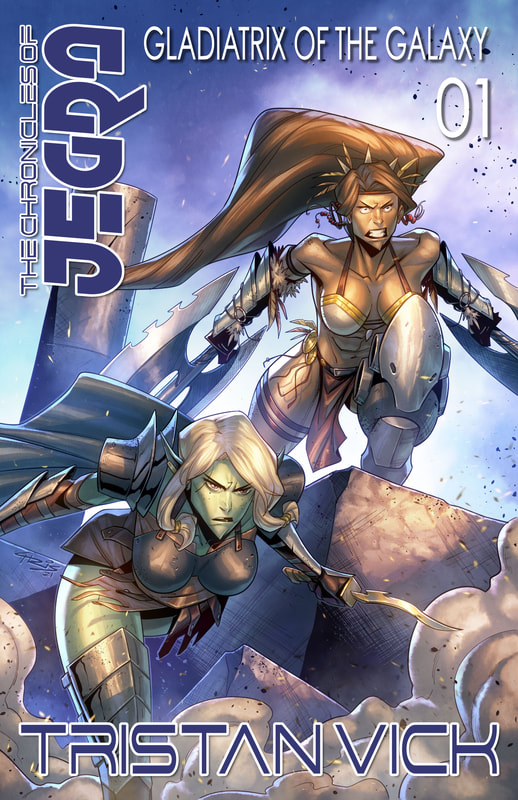
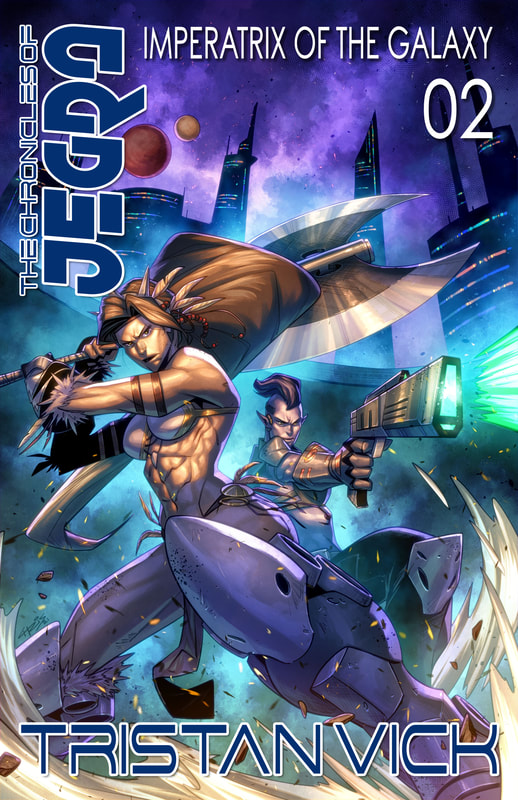
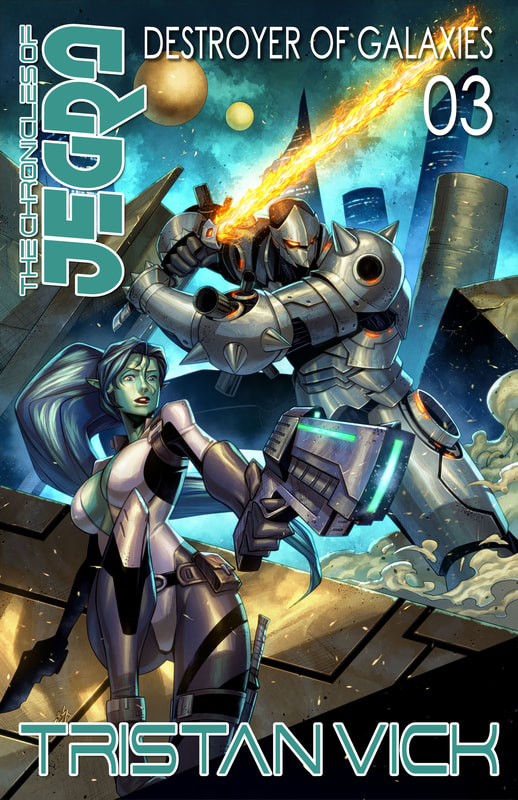
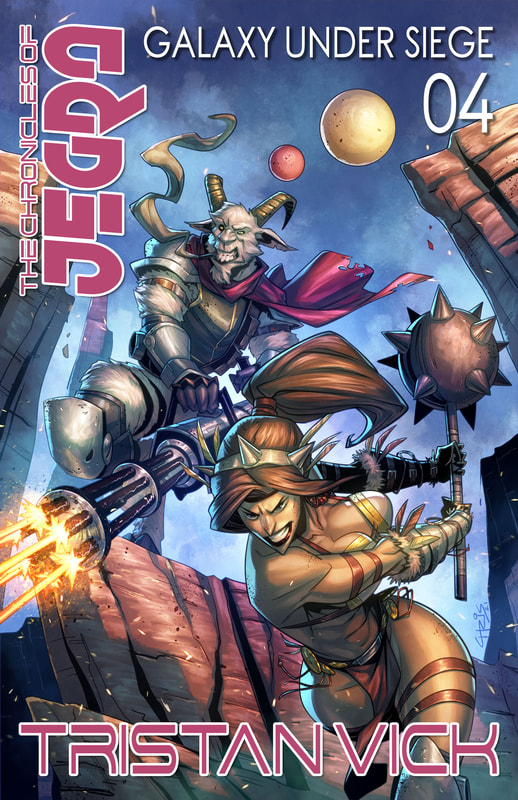
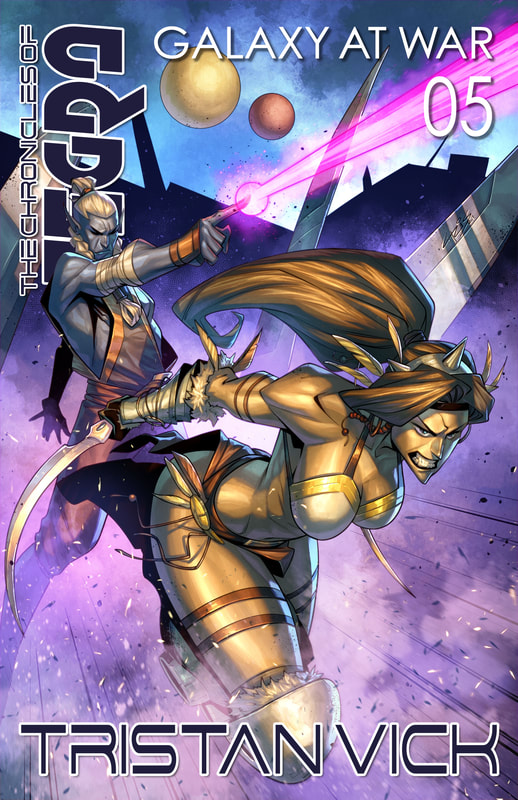
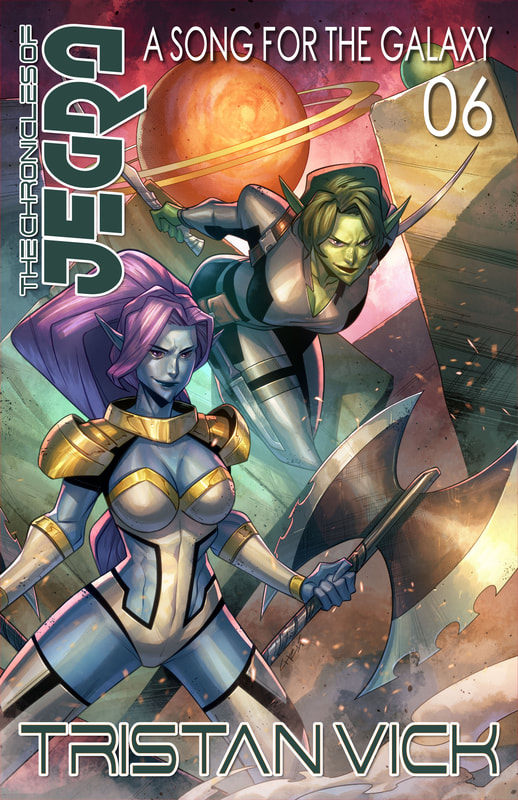
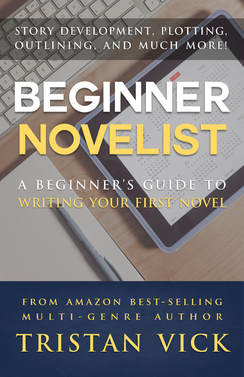
 RSS Feed
RSS Feed
